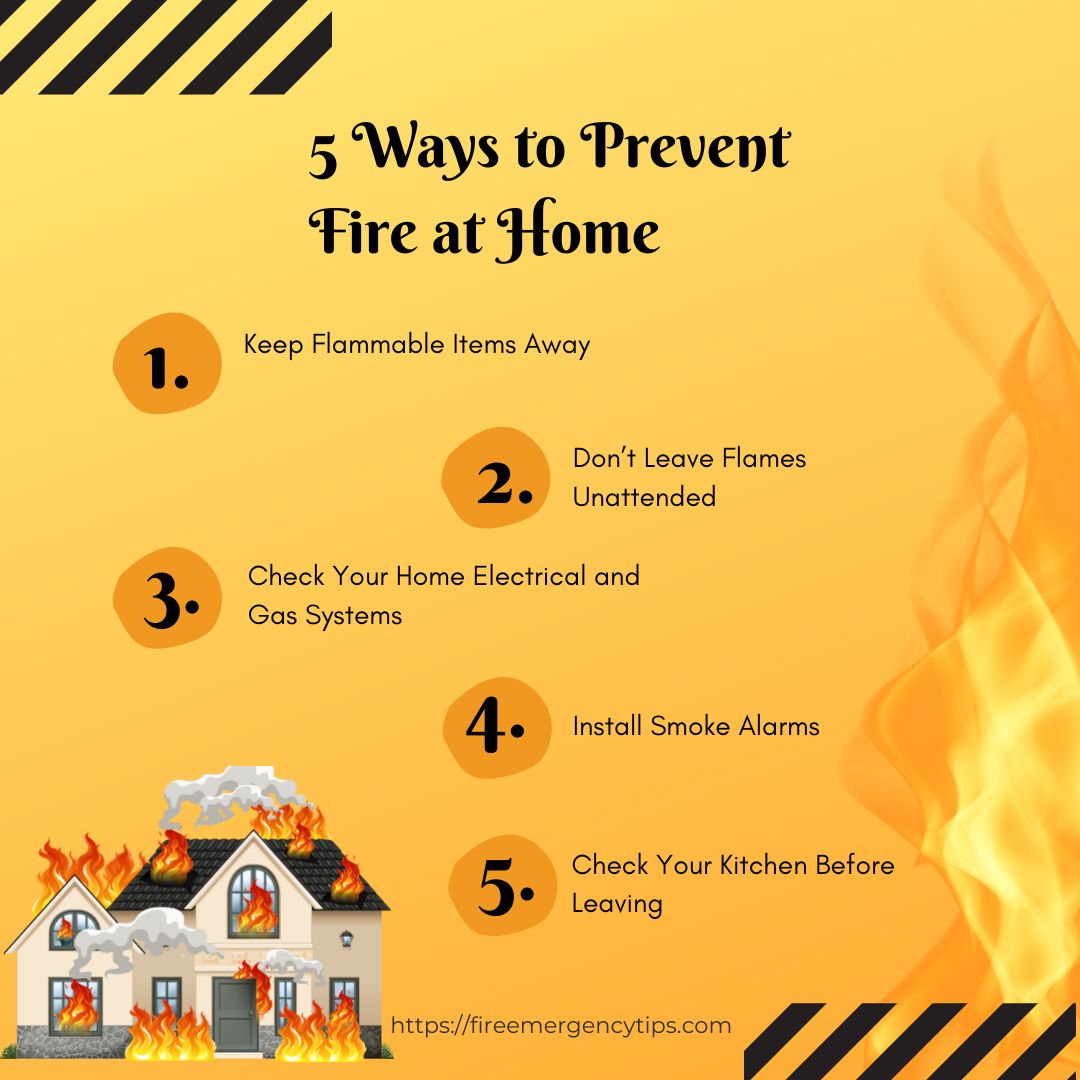
As the saying goes, “prevention is better than cure.” When it comes to fires, it can be a devastating experience to encounter a fire outbreak in your home. You, therefore, want to try all means to ensure that you prevent it from happening. This article will help you will useful ways that you can use to prevent fire at home and to stay safe at all times.
Before we discuss how to prevent it, it is important to understand the causes of home fires. According to National Fire Protection of the United States, most fires in homes result from the following causes:
- Cooking
- Heating equipment
- Electrical and lighting equipment
- Intentional fires
- Smoking materials
I also wrote an article about white goods that can be a fire risk and you may also want to read that so you can know the type of appliances that can easily cause fire.
Statistically, cooking is the leading cause of fires in the United States followed by heating equipment. Therefore, when you understand the cause of most fires, then it would help in planning how to prevent such fires but that does not mean you should assume the least causes since they too have the potential to cause devastation.
Having known the causes of fire, the following, therefore, are some of the ways that you can use to prevent such fires and avoid the losses that would otherwise result.
1. Keep Flammable Items Away
Keep anything that can easily catch fire away, especially from the kitchen, burning candles, or heating equipment. These items may include things like fabric, hair, clothes, paper, curtains, bedding, matches, furniture, and flammable fluids.
2. Don’t Leave Flames Unattended
If you are cooking, don’t leave flames without anyone to monitor them. For instance, you may want to take a shower, or even pick up a call and this may take some time before you are back. Especially when you are frying, you need to be alert and not leave the kitchen but if you must, you should turn off the stove or your cooking appliance.
You also need to have a fire smother or fire blanket when cooking so that you can easily extinguish grease fires or any fire that may start in the kitchen.
You may also need to have a metal or glass fire screen that can help in keeping the fire in the fireplace. This can help a lot during winter when you want to keep the embers in the fireplace for keeping the warmth in the house.
3. Check Your Home Electrical and Gas Systems
It is important to ensure that your home electrical and gas system is in good condition at all times. If you notice any flickering lights, there may be a short-circuit issue and that needs to be fixed to avoid any potential fire hazard.
The best practice is to use a professional rather than doing it by yourself unless you are trained in handling electric and gas systems.
Use surge protectors – it is a good idea to have a surge protector to avoid potential fires that may result from power surges. A two-tiered surge system can work great for your devices. You may also want to consider one for the whole house as that can be installed on the mains and a whole house surge protection device can be helpful.
If you want to protect all your devices from power surges, then you should get a Point-Of-Use Power Surge device and with that, your electrical devices will be safe. I would recommend EATON Ultimate Surge Protection for your home devices.
Unplug the appliances that are not in use – you need to unplug any device that is not in use such as chargers since they may overheat and cause fires.
4. Install Smoke Alarms
Smoke alarms are useful since they can easily alert you when there is smoke in your home. Therefore, with early detection, you can easily manage fires that would otherwise be devastating.
To help save lives, you may need to install them in all the rooms in your home including the bedrooms, basement, and even in the living room.
If you need to install one in your home, I would recommend First Alert Photoelectric Wireless Smoke Alarm. It runs on the battery that comes with it and the alarm is audible enough.
5. Check Your Kitchen Before Leaving
Before leaving the house or going to bed, check the kitchen to ensure that all the heating appliances have been turned off. Check your stoves, ovens, and even candles if you were using them. Just make sure that everything that would potentially cause fire is turned off.
If you were using a space heater, you may also want to turn it off when leaving your home since anything that could cause fire can happen.
Conclusion
With these few tips, you can save a life and your valuable properties from getting damaged by fire.

